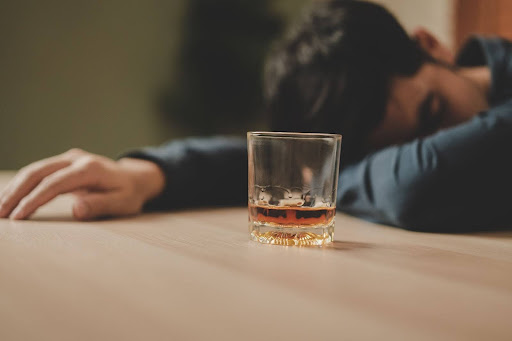Insomnia is a common issue that affects many individuals, often resulting in difficulty falling or staying asleep. Alcohol, while sometimes used as a temporary sleep aid, can actually exacerbate sleep problems over time. Understanding the relationship between alcohol and sleeplessness is crucial for addressing and improving sleep quality.
Table of Contents
What Is Insomnia?
Insomnia is a sleep disorder that involves chronic difficulties with falling asleep, staying asleep, or getting restorative sleep.
Insomnia can be categorized into two types:
- Acute Insomnia: Short-term insomnia, often caused by stress or significant life changes, that typically resolves on its own.
- Chronic Insomnia: Long-term insomnia that persists for a month or longer and often requires intervention.
Symptoms of insomnia include:
- Trouble falling asleep at night
- Frequent waking overnight
- Waking up too early (and struggling to fall back asleep)
- Feeling tired after waking
- Daytime sleepiness or fatigue
- Irritability, depression, or anxiety
- Difficulty concentrating or remembering things
Insomnia can have profound effects on daily functioning and overall health, making it essential to identify and address its causes. Even minor sleeplessness can add up over time, causing serious problems. It can make you feel tired, affect your mood, and lower your productivity, gradually harming your health and well-being. Addressing these sleep issues as soon as possible can help prevent bigger health problems.
How Does Alcohol Affect Your Sleep Cycle?
Alcohol works as a central nervous system depressant, which means it slows down brain activity. When you drink, it increases the effects of a calming brain chemical called GABA. This makes you feel relaxed and sleepy at first. Many people think this will help them sleep better, but it actually causes problems later on.
As the initial effects wear off, the body begins to process the alcohol, which can cause disruptions in sleep. This can lead to waking up during the night and feeling less rested in the morning. These disruptions can manifest in various ways, including the following:1,2
Disrupted Sleep Stages
Alcohol interferes with the natural progression of sleep stages, particularly REM (rapid eye movement) sleep, which is crucial for mental restoration. Reduced REM sleep can lead to impaired cognitive function and mood disturbances.
Frequent Awakenings
As alcohol is metabolized during the night, it leads to fragmented sleep. This results in lighter sleep stages and frequent awakenings, particularly in the second half of the night. This interruption prevents you from getting restful and restorative sleep.
Breathing Issues
Alcohol relaxes the muscles in the throat, which can exacerbate breathing problems such as sleep apnea and snoring. These issues further disrupt sleep and can lead to daytime fatigue.
Increased Urination
Alcohol is a diuretic, meaning it increases the production of urine. This can cause individuals to wake up multiple times during the night to use the bathroom, disrupting sleep continuity.
How to Sleep Better Without Alcohol
If you’re struggling with sleeplessness or insomnia, it’s important to seek solutions that don’t involve alcohol. Here are eight effective strategies you can use to improve sleep quality without turning to addictive substances:
1. Establish a Consistent Sleep Schedule
Keeping roughly the same sleep schedule helps to regulate the body’s internal clock. Go to bed and wake up at the same time every day, including weekends. This consistency reinforces healthy sleep patterns.
2. Create a Relaxing Bedtime Routine
Help your body recognize when it’s time for sleep by creating a relaxing ritual that you follow the same way every night. Calm activities like taking a soothing bath, meditating, practicing deep breathing, or reading a book can help promote better sleep.
3. Optimize Your Sleep Environment
Ensure your bedroom is conducive to sleep. This includes keeping the room cool, dark, and quiet. Invest in a comfortable mattress and pillows, and eliminate any sources of light and noise.
4. Avoid Stimulants and Heavy Meals Before Bed
Don’t have caffeine, nicotine, or heavy meals close to bedtime. The stimulant chemicals and/or digestive response after eating can make it harder for your body to wind down. If you’re hungry, have a light snack instead.
5. Engage in Regular Physical Activity
Exercise can help improve sleep quality, but try to avoid vigorous activity close to bedtime. Aim for moderate exercise, such as walking or yoga, earlier in the day.
6. Manage Stress and Anxiety
Stress and anxiety are common contributors to insomnia. Practice stress-reducing techniques like mindfulness, meditation, or journaling. Seeking support from a therapist can also be beneficial.
7. Consider Natural Sleep Aids
Certain natural supplements, like melatonin or valerian root, may help promote sleep. However, it’s important to consult with a healthcare professional before starting any new supplement.
8. Monitor Light Exposure
Exposure to natural light helps regulate your sleep-wake cycle. Try to spend time outside or open the curtains during the daytime. In the evening, reduce exposure to bright screens to help signal to your body that it’s time to wind down.
End Alcohol Addiction and Sleep Better With Treatment From Lumina Recovery
At Lumina Recovery, we understand the complex relationship between alcohol and sleep. Alcohol addiction not only disrupts sleep patterns but also affects overall health and well-being. Our comprehensive treatment programs are designed to address the root causes of addiction and provide the tools needed for long-term recovery.
In our personalized, evidence-based treatment plans, individuals benefit from professional medically assisted detox, therapy, and holistic practices that promote healthy sleep habits and overall wellness.
Contact Lumina Recovery today to learn more about our alcohol addiction treatment programs and start your journey to recovery.

